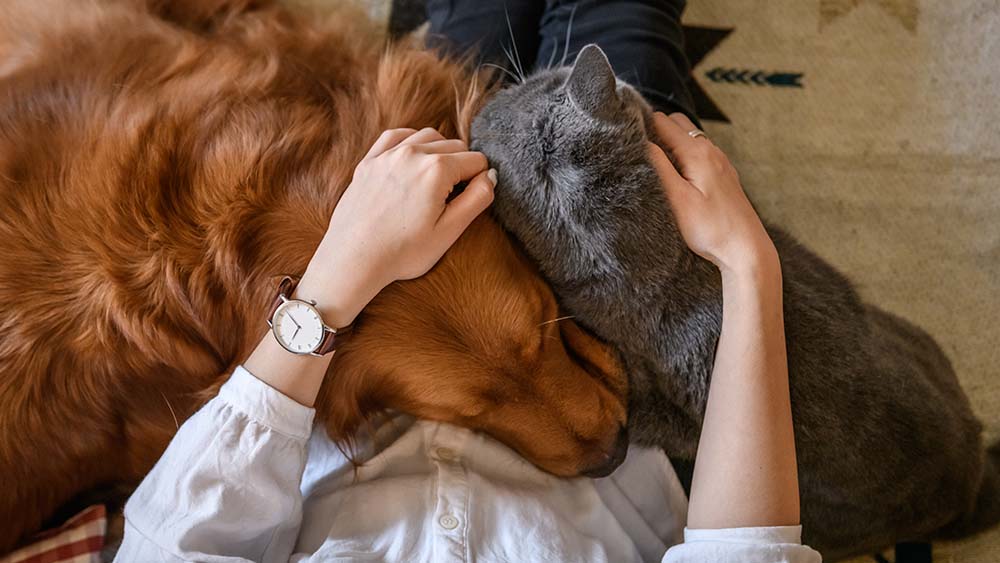
Key Takeaways
- Maintaining a comfortable indoor environment is crucial for your pet’s health.
- Set your home temperature between 68–78°F to keep your cats and dogs comfortable year-round, adjusting for their size, coat, and health.
- Use smart thermostat to monitor and adjust your home temperature remotely, keeping pets safe without wasting energy.
The best way you can shower your pet with love is by keeping them comfortable and happy. While a happy pet brings great joy, the task of delivering ultimate pet comfort can be quite challenging at times, especially during the sweltering summers or cold winter months.
Just like humans, the temperature has a significant effect on animals and as the weather conditions become extreme, your pet’s comfort should be your topmost priority. As a general rule of thumb, if the temperature is too hot or too cold for you, then it must be severe for your pets too. Extremely hot temperatures combined with humidity can cause dehydration while temperatures below 32 degrees Fahrenheit can cause frostbite or hypothermia.
Cats and dogs may need air conditioning during summer just as they need to be kept warm during winter. You may be concerned about how air conditioners can affect your cat or dog. Moreover, your air conditioning units can also be impacted by your pet.
Read on as we address the top questions that you may face when struggling to deliver the ideal temperature for your cat or dog.
Factors Affecting Comfortable Temperatures for Cats and Dogs
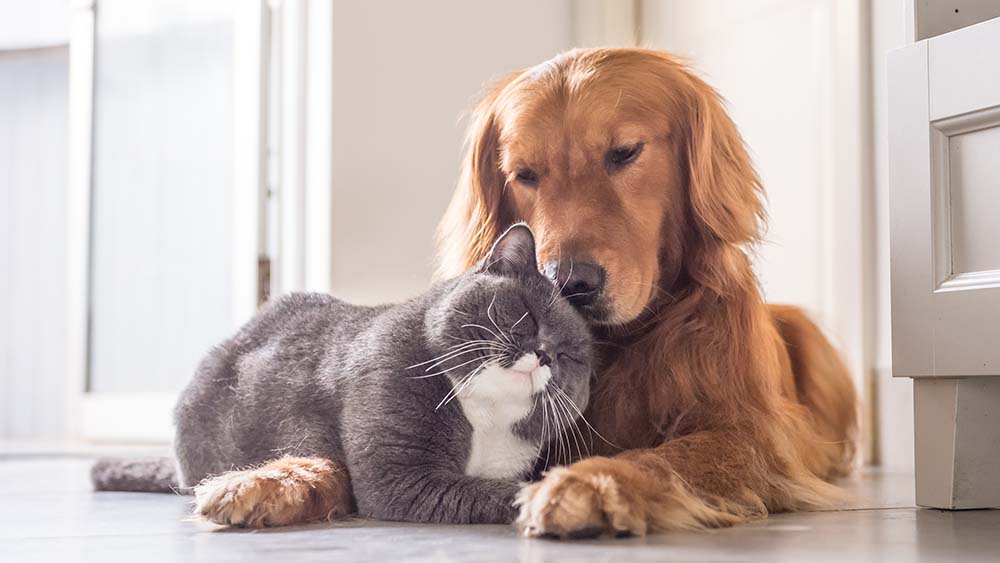
There is no one size fits all solution or one ideal temperature that would ensure the comfort of each and every pet. This would greatly depend on the type of pet and its unique characteristics. Following are the factors that can be taken into account to determine what temperature would be best for your cat or dog:
Size of the Pet
Small pets cannot retain heat in their body due to a higher surface area to volume ratio. Large animals, on the other hand, can easily retain heat. Keeping this factor in view, if your dog is from the smaller breed sizes, you know it can quickly get cold as compared to larger breeds!
Type of Coat and Thickness
Cats and dogs with thick and long fur coats are more tolerant towards cold than pets with thin coats. Pets with thick coats prefer cooler temperatures since they retain more heat within their body – imagine wearing a coat at all times! On the contrary, pets with a thin coat cannot retain heat in their bodies and prefer warmer temperatures. They clearly require special attention during winter. Also, in case the heat is high and direct, a lack of fur may make them more susceptible to sunburn.
Weight of Pet
Body fat contributes a lot to temperature sensitivity as it acts as an insulating layer for pets. Overweight pets have a thick insulating layer that protects them from the cold. On the other hand, underweight pets are generally weaker and more prone to extreme weather conditions.
Your best choice to make any mini-split, window,
or portable AC smart. Enhance your comfort and savings.
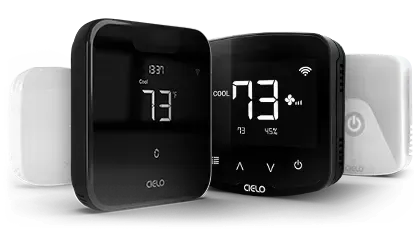
Health Factors
Pets suffering from medical conditions may have a weakened immune system and be more susceptible to colder temperatures. Keeping them warm and cozy can ensure comfort.
Age of your Cat or Dog
As your pets get old, their ability to regulate their own temperature lowers. If you have an older pet, there is a possibility that it might require warmer temperatures than young and active pets. But be careful with puppies and kittens, very young pets are also sensitive to the cold and it is necessary to keep them warm.
Choosing the Best Home Temperature for Your Cat or Dog
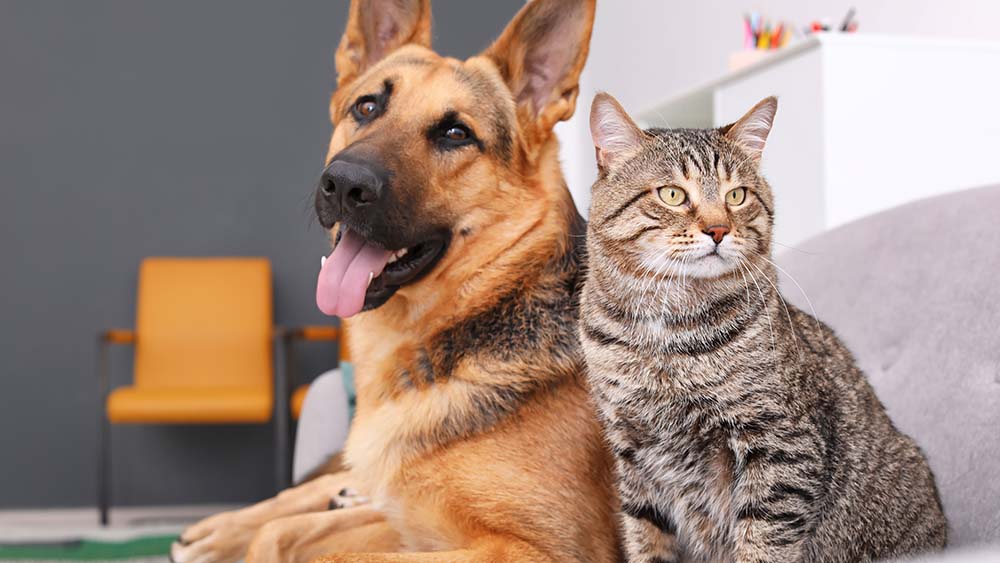
Maintaining the ideal temperature for pets can be a difficult job and might require some effort. You can maintain that ideal temperature using a smart AC controller as it allows you to set temperature triggers and even lets you change the temperature range, wherever you are.
Here’s how to DIY a smart air conditioner!
Winter Temperature Guide for Dogs
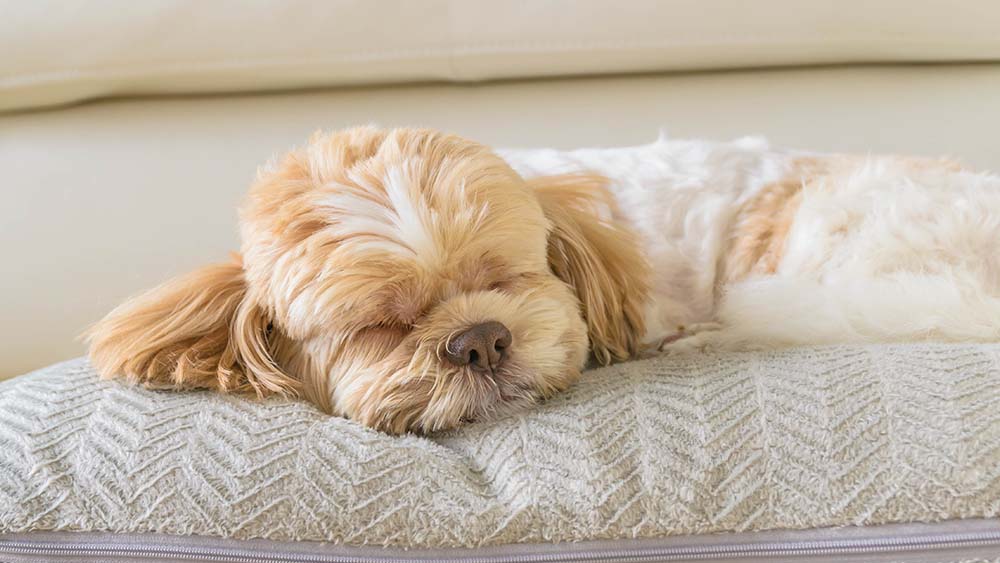
Generally, cold temperature is not an issue for healthy dogs until it drops below 45 degrees Fahrenheit. This is the point where it gets too cold for dogs and they start to feel uncomfortable. If you notice that your dog is lethargic, whiny, anxious or shivery then he is probably affected by the cold. Temperatures below 20 degrees are dangerous and can put your pet at risk of hypothermia.
The best temperature to set your home thermostat to during winter is between 68-72 degrees for a happy and thriving dog. Using smart AC controllers, if you have a ductless system, or smart thermostats, you can maintain the ideal temperature for your pet’s comfort.
Winter Temperature Guide for Cats

What temperature do cats like? If your cat has a thick coat and stays indoors, then you don’t have to worry about the temperature in winters. There is nothing cuter than a cat curled up on soft bedding and purring soundly. Indoor cats find one way or another to make themselves comfortable. However, if your cat is rolled up too often and is restricting movement, she is probably very cold. House temperatures between 60-68 degrees Fahrenheit work well for cats but if they are still rolled up try 70!
Small cats prefer a warmer environment, and anything between 78 and 80 degrees might provide them just the comfort they need! It’s always important to observe your cat’s behavior and comfort level and adjust the temperature accordingly!
Be careful with thyroid conditions in cats. It can make them less tolerant of heat, so you will need to adjust your temperature accordingly.
Summer Temperature Guide for Dogs
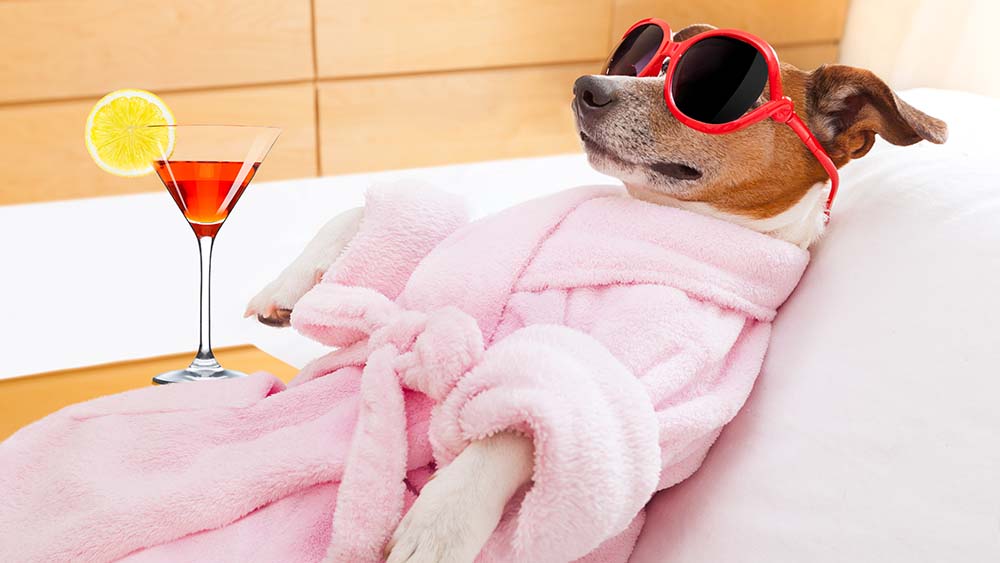
When your furry friends are outside, ensure their safety and comfort. This includes considering their training tools, such as vibration collars, and providing access to cold water and shade.
When your dog stays indoors, make sure to set the temperature according to your pet’s comfort. The temperature range varies with size and coat type, but the recommended temperature for dogs is between 75 and 78 degrees Fahrenheit.
Moreover, humidity can also have a great effect on the comfort of a dog. High humidity, coupled with high temperature, can be very exhausting for your dog compared with the same temperature at low humidity. Watch out for symptoms of dehydration and heatstroke, such as panting, disorientation, drooling, and unconsciousness, etc. Monitor your home’s humidity levels and keep them in control!
Here’s a detailed guide on how to keep your dogs cool in summer.
Summer Temperature Guide for Cats

Cats are good at keeping themselves warm but not cool. If you have a long-haired, big-sized, or overweight cat, then you can maintain the temperature around 80 degrees or below if the temperature at home gets too hot. On the contrary to it, if your cat is small with a thin coat, you may keep the temperature between 85-90 while leaving your fan or window open. Keep in mind, that kittens can handle high temperatures much better than an adult cat.
Monitor your cat’s behavior and adjust the temperature accordingly. Signs indicating the discomfort of your cat during hot weather are tremors, vomiting, diarrhea, lethargy, and excessive drooling, etc.
Can Air Conditioners Make Your Cat or Dog Sick?

Unfortunately, there is no magic number for an AC setting that will provide the ideal temperature for your cat or dog. If your air conditioning settings are too cold for your pet than yes, it can make them sick. On the other hand, if the weather is extremely hot and you do not turn the air conditioner on then that can also make your pet sick.
Air conditioners can only make your pet sick if you don’t use the perfect settings, otherwise, they are perfectly safe and very useful for cats and dogs!
There are no risks involved if you leave your pets at home with the air conditioner activated. You can ensure the comfort of your pets with the latest technology in town i.e. smart thermostats. Smart climate control devices allow you to control the temperature of your home from anywhere and easily be able to monitor it. This would help you regulate your home’s temperature for your pets while you are away.
Should You Leave the AC on for Your Cat or Dog?
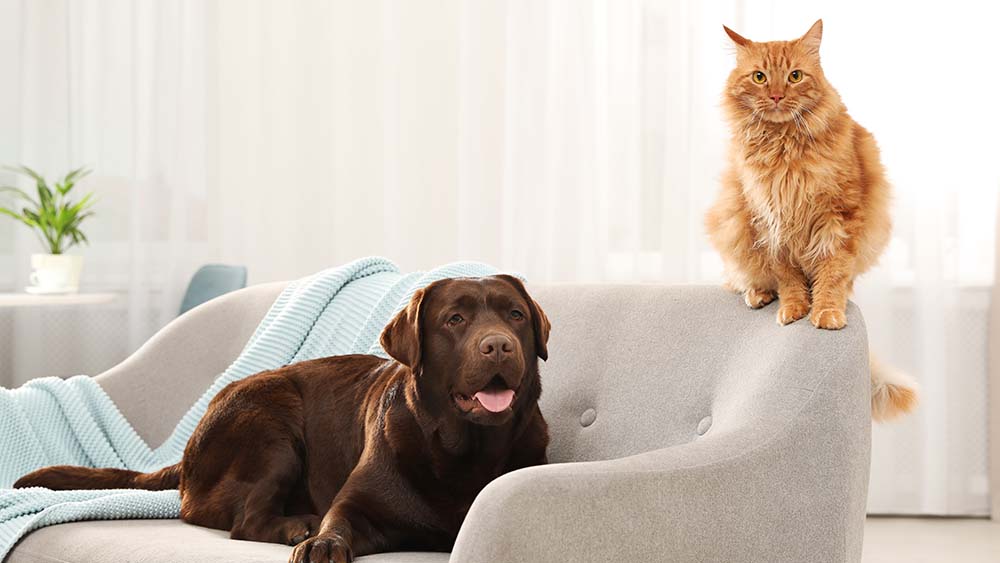
Air conditioning costs play a huge effect on your bills and leaving your unit on even when you’re not home can be a tough decision. Unfortunately, at times it is necessary to keep track of and control indoor temperatures for your beloved pet. Imagine if your cat or dog is locked alone at home and it suddenly becomes unbearably hot, they can greatly suffer.
The best way to keep your pet comfortable while keeping your energy costs in check is to set a comfortable temperature range, ideally 78-80 degrees. Smart thermostats for ducted systems or smart AC controllers for mini-splits, portable and window units can help maintain the indoor temperature. Moreover, they also help you save costs. Smart thermostats or controllers are highly advised in this scenario as you can easily monitor and control your home temperature for your pet no matter where you are.
High temperature is not an issue for animals but high temperature coupled with humidity is. If the temperature outdoors is high, make sure to maintain the optimum temperature for your pets indoors. It is wise to leave the AC on for your pets to avoid potential issues concerning health the pets.
HVAC Tips for Pet Owners

Pets are amazing playmates and offer several other benefits but there are drawbacks, especially concerning your heating and cooling system at home. While taking care of your pet comfort, make sure to keep a check on your HVAC system because pets release fur or dander which can get sucked into the vents of cooling and heating systems.
If you own a furry pet timely AC tune-ups and consideration of a few factors can keep your HVAC unit in excellent condition:
Keep your Home Clean
Living with pets at home means living with fur and dirt as well. This is not favorable for your HVAC system as they can become clogged and contaminated with debris. Keep your HVAC system free of dander and pet hair by regularly dusting and vacuuming your home. Keeping your home clear of allergens, pet hair and dander will help your HVAC system from being overloaded.
Regularly Change the AC Filter
You should be changing your AC filter at least four times every year or even more frequently if you own a pet. You will find your filter matted with pet hair in addition to other particles like dander or skin cells. Changing the filter will help improve the efficiency of your HVAC system. This is because when the system is clogged, the HVAC system needs to work harder to maintain the airflow.
While choosing the filter, pay attention to the quality of the filter. A high-quality filter will remove the debris and this helps with pet hair and dander. Furthermore, you can improve the indoor air quality with HEPA (High-Efficiency Particulate Air) filters.
Keep your AC Vents Clean
Along with the air filters, it is necessary to clean your air vents. Clean the vents as often as you change the air filters. Cleaning the vents can also help you to improve the efficiency of your HVAC system and will help you to maintain the desired temperature for your pets!
Groom your Pet Regularly
When your pet is clean and its fur is trimmed, your home and indoor air stays cleaner. Less shedding translates to less fur in the filter and ducts.
Pet hair can clog air filters of your HVAC system. Regular grooming of the pet prevents the filters of the HVAC system from being clogged. Regular brushing for pets with thick undercoat also helps air filters from being clogged.
Use an Air Purifier
Air quality can be drastically improved by using an air purifier. You can get rid of unwanted pet hair and other lurking allergens. Air purifiers cleanse the air effectively by capturing unwanted airborne particles. Smart air purifiers constantly track air quality, monitor trends and can be very efficient in smartly ridding your home from any wandering pet hair.
Protect your Outdoor AC Unit
Use a fence or any barrier to keep your pets away from the outdoor AC unit. It is really important to have a barrier around the unit because usually cats can claw at the fins or dogs can chew on the cables. Your pet’s urine can also destroy the unit as acids in the urine are corrosive. They can damage an air conditioner’s coil and fins.
Moreover, there is a danger to your pets also. If pets come in direct contact with the wires of your AC unit, they can harm themselves. In extreme cases it can also be fatal. Making sure that your HVAC system is working efficiently while keeping your pet’s comfort in consideration is important! Yes, pets can affect your air conditioning but maintaining your HVAC system in perfect condition ensures that your pet can live in comfort. The above-mentioned tips and suggestions will surely be of great help in ensuring that your pet gets the treatment it deserves, while also keeping your HVAC system in top shape.
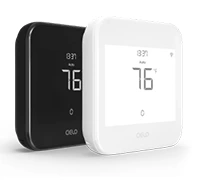
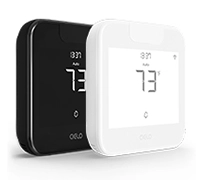
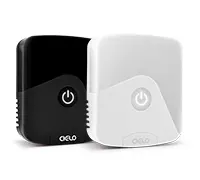
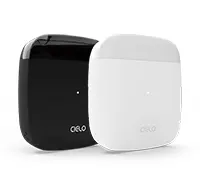
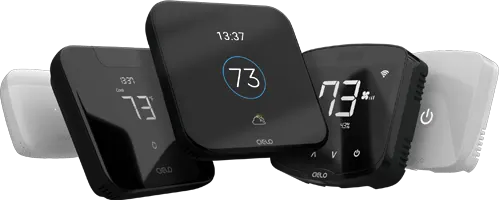
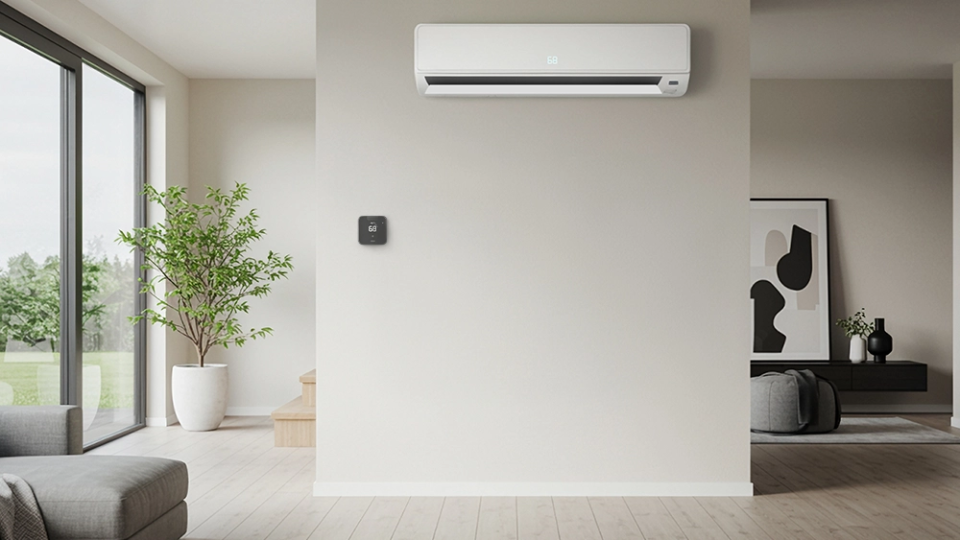
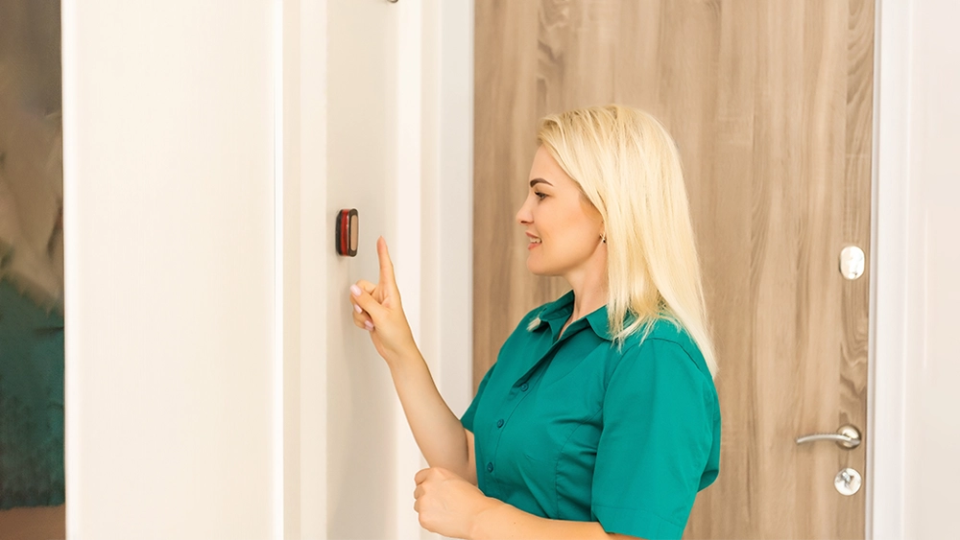
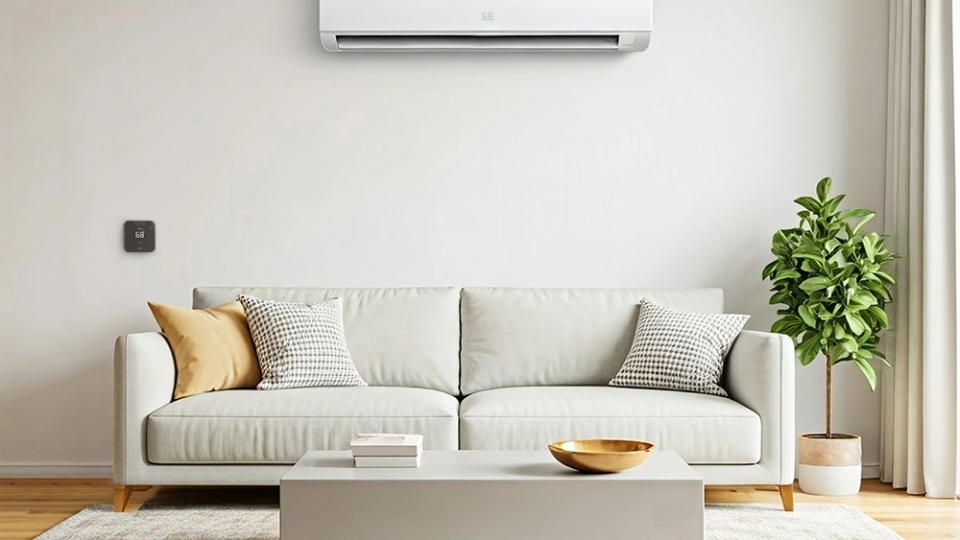
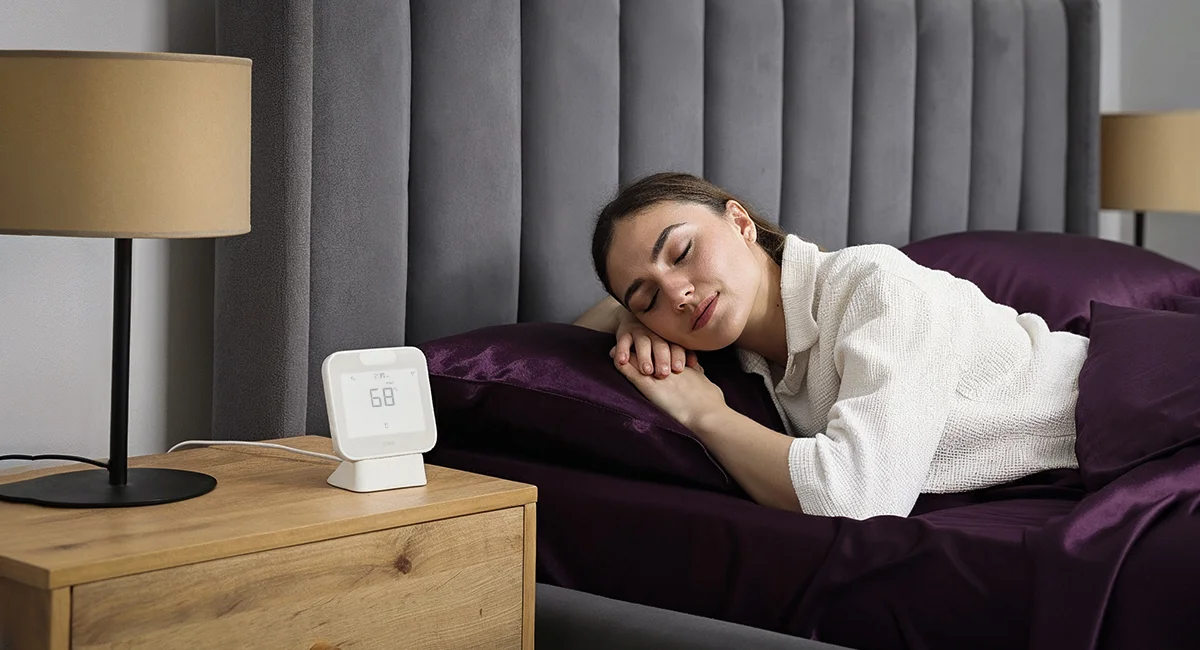
2 Comments. Leave new
Optimum temp for animals is 76/78 degrees,so maybe agree to keep AC on at higher temp,and it will help lower your bills too!
My roommate won’t allow me to have the AC on during the day when she’s at work and I’m at home, because she thinks it’s making her cat sneeze. We have a smart thermostat and she can control it from her phone and she has put a PIN number/lock on the AC so I can’t turn it on at all. I live in Orange County California and it’s generally always warm here, we don’t get all 4 seasons! She is able to see what temperature the AC is set at and for how long it’s been on (when I was able to turn it on) and I’ve never set the temperature any lower than 68degrees one time I set it at 67 degrees! I pay half of the electric bill and I’m the one who’s home during the day when it’s hot, and the reason she won’t allow me to turn it on is because she thinks it’s making her cat sick/sneeze! Her cats are 4-5 months old, ever active and hyper male cats thats haven’t been fixed! Can someone please help me with this situation and tell me how I can inform her that the AC set at 68degrees is NOT what’s making her cat sneeze!